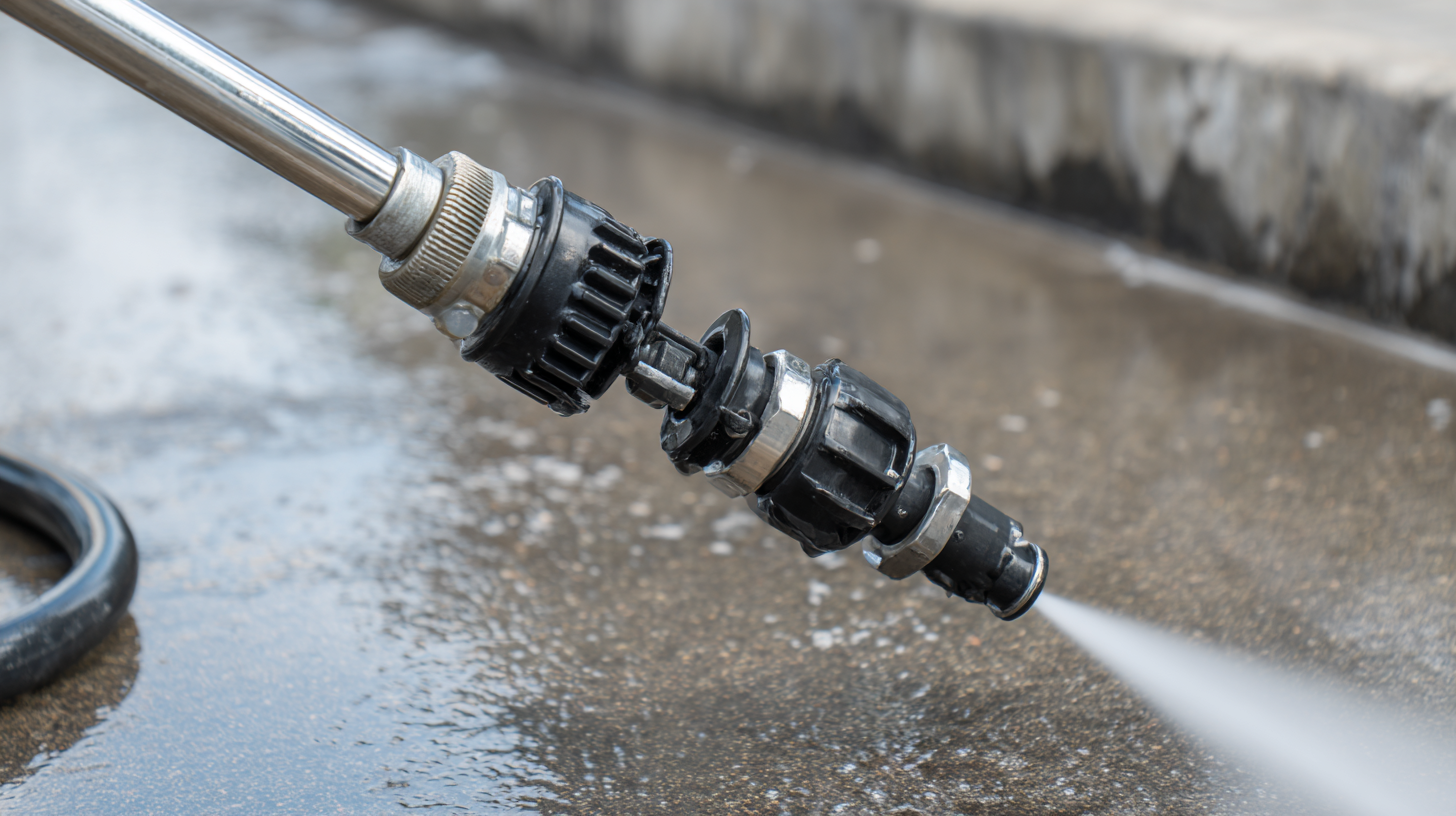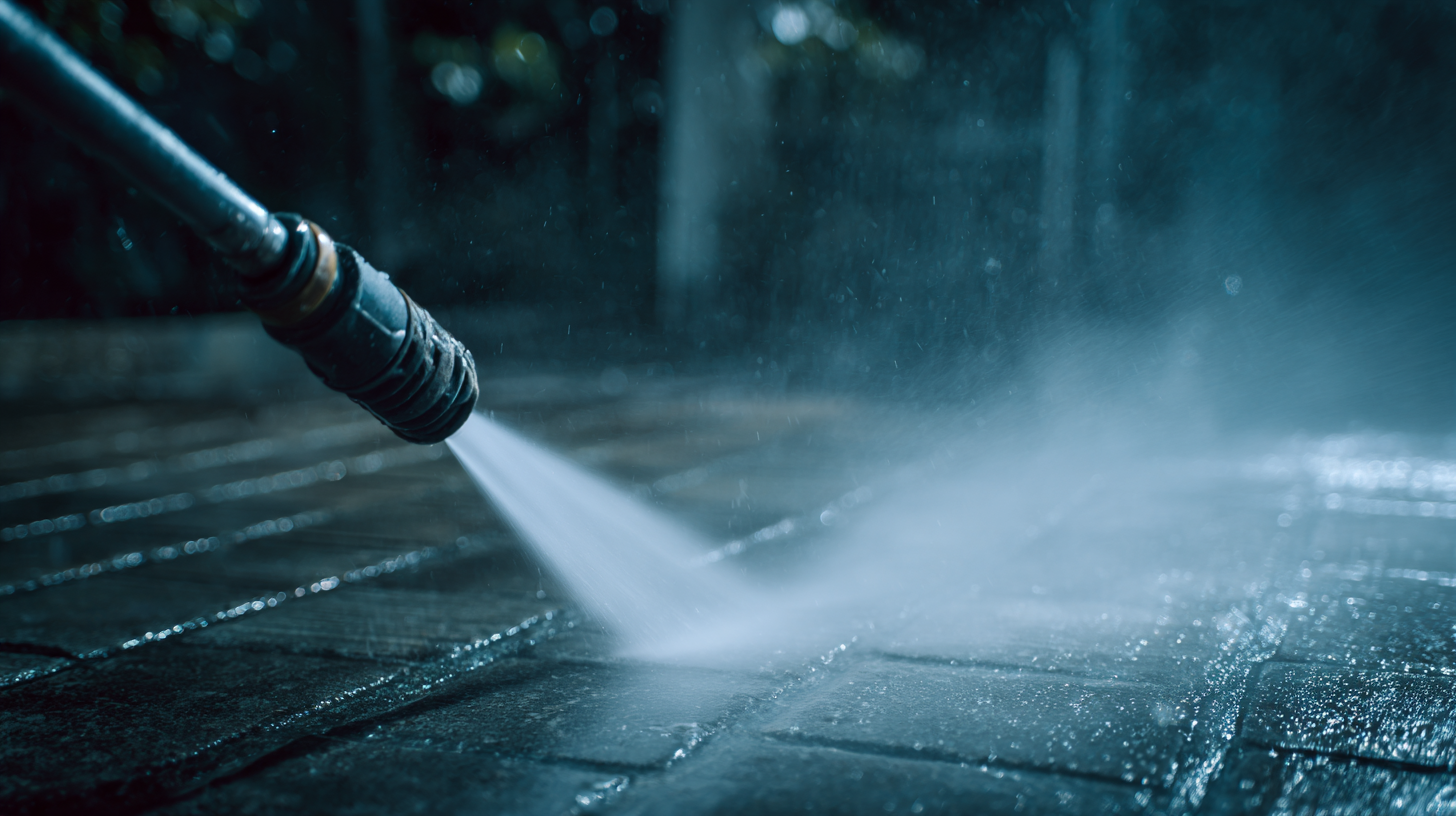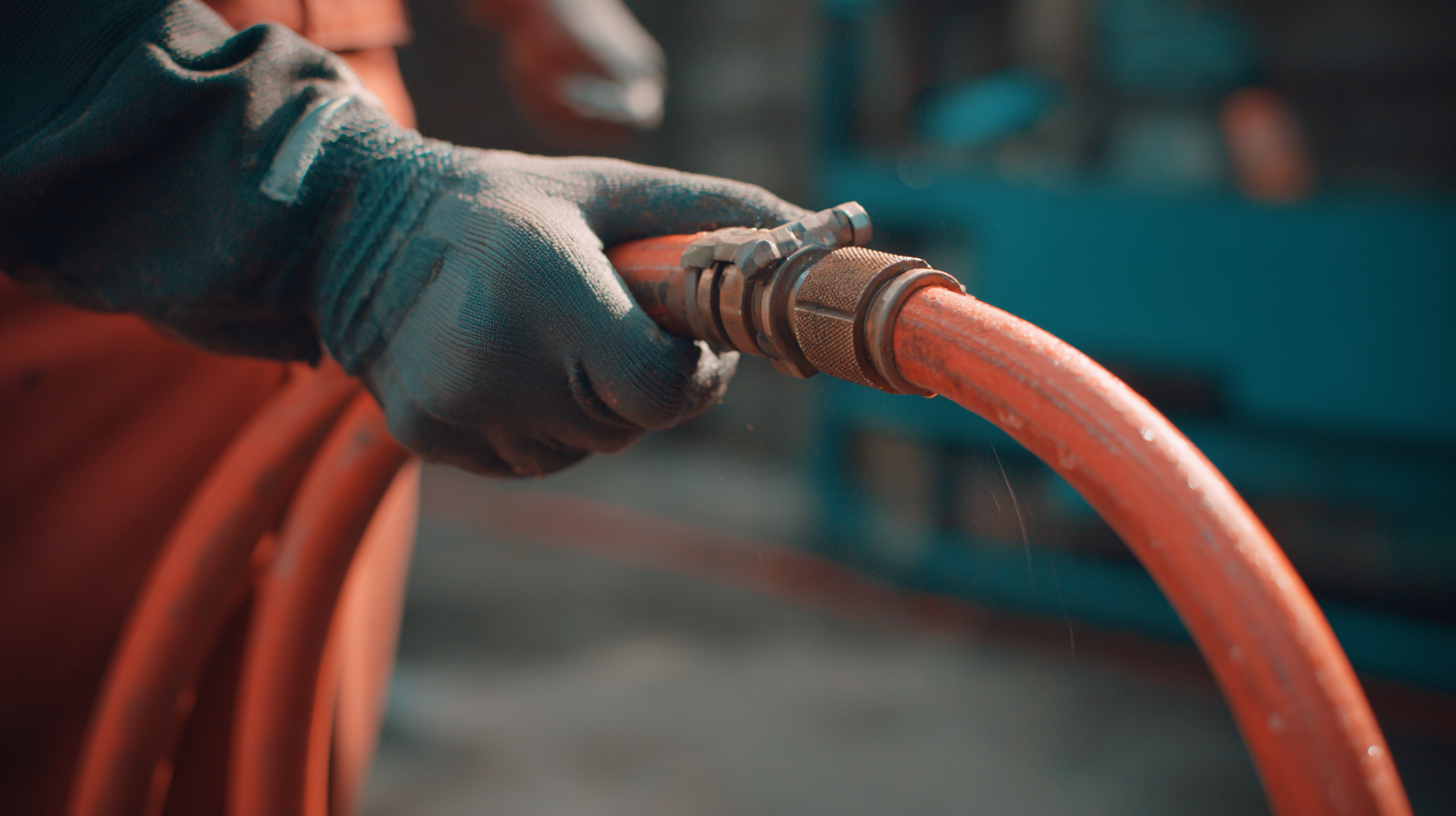Unlocking Efficiency: How to Choose the Right Pressure Washer Hose for Every Job
When it comes to maximizing performance and efficiency in your cleaning tasks, understanding the various types of pressure washer hoses is crucial. A pressure washer hose serves as the vital link between your cleaning unit and the target surface, making its selection a significant factor in achieving optimal results. The right hose not only enhances the effectiveness of your pressure washer but also improves the ease of use and safety during operation. With a plethora of options available, including varying lengths, diameters, and materials, choosing the correct pressure washer hose for every job can seem overwhelming. This guide will delve into the distinct types of pressure washer hoses available, assisting you in making an informed decision tailored to your specific cleaning requirements. Whether you are tackling a simple household chore or a demanding commercial job, the right hose can transform your pressure washing experience.

Understanding Different Types of Pressure Washer Hoses and Their Applications
When choosing a pressure washer hose, understanding the different types and their specific applications is crucial for achieving optimal efficiency. There are primarily three types of hoses: rubber, PVC, and polyurethane. According to a report by the Pressure Washer Manufacturers Association (PWMA), rubber hoses are favored for their durability and flexibility, making them suitable for both residential and commercial tasks involving heavy-duty cleaning. They can withstand high temperatures and pressures, which is essential for jobs such as industrial equipment cleaning and graffiti removal.
PVC hoses, on the other hand, are lighter and more cost-effective, making them suitable for occasional home use and lighter tasks like vehicle washing or outdoor furniture cleaning. The same PWMA report notes that while PVC hoses are less resilient than their rubber counterparts, advancements in technology have improved their capability to handle moderate pressure levels efficiently. Lastly, polyurethane hoses boast excellent flexibility and resistance to kinks, making them ideal for intricate cleaning jobs and tight spaces. For optimal performance, selecting the right hose based on material and application can significantly enhance the pressure washer's cleaning effectiveness and life span.

Key Factors to Consider When Selecting a Pressure Washer Hose
When selecting the right pressure washer hose, several key factors come into play to ensure efficiency and effectiveness in your cleaning tasks. The first consideration is the hose length. A longer hose provides more reach, allowing for greater maneuverability without needing to move the pressure washer. However, longer hoses can lead to a decrease in pressure, so balance is essential. For most residential jobs, a 25 to 50-foot hose is typically suitable, but for larger areas, a longer option may be necessary.
Additionally, the hose material and diameter play crucial roles in its performance. Rubber hoses are more durable and can withstand higher pressures compared to vinyl hoses. A wider diameter hose allows for greater water flow, enhancing cleaning power, especially for demanding tasks. Typically, a 1/4-inch diameter is standard for residential use, while heavier commercial jobs might benefit from a 3/8-inch hose. Lastly, compatibility with your pressure washer is vital; ensure that the hose fittings match your machine to avoid leaks or damage. By considering these factors, you can choose a pressure washer hose that significantly enhances your cleaning efficiency.
Unlocking Efficiency: How to Choose the Right Pressure Washer Hose for Every Job
| Hose Material | Length | Diameter | Max Pressure | Temperature Rating | Flexibility | Storage Ease |
|---|---|---|---|---|---|---|
| PVC | 25 ft | 1/4 inch | 3000 PSI | 140°F | Moderate | Easy |
| Rubber | 50 ft | 3/8 inch | 4000 PSI | 180°F | High | Moderate |
| Polyester | 100 ft | 1/4 inch | 2500 PSI | 120°F | Low | Easy |
| Steel Reinforced | 75 ft | 3/8 inch | 5000 PSI | 200°F | Moderate | Difficult |
Matching Hose Lengths to Specific Cleaning Tasks for Optimal Efficiency
When selecting a pressure washer hose, it’s essential to match the hose length to specific cleaning tasks to optimize efficiency. Longer hoses provide the added reach to tackle large areas without frequently repositioning the pressure washer, making them ideal for expansive driveways or outdoor spaces. However, using a hose that is excessively long can lead to decreased water pressure, which may hinder cleaning performance. Therefore, it’s vital to balance reach with adequate pressure to ensure effective cleaning.
On the other hand, shorter hoses are advisable for projects that require precision and control, such as detailing vehicles or cleaning furniture. They allow for easier maneuverability in tight spaces and help maintain consistent pressure, ensuring that the cleaning results are up to the mark. By assessing the cleaning requirements and choosing the appropriate hose length, users can enhance their efficiency and achieve better outcomes in their pressure washing tasks.
Material Comparisons: Rubber vs. PVC and Their Impact on Performance
When selecting a pressure washer hose, the choice of material significantly impacts performance and durability. Rubber hoses are known for their resilience and flexibility, making them ideal for high-pressure applications. They can withstand extreme temperatures and resist abrasion, ensuring a longer lifespan even in demanding conditions. Additionally, rubber hoses are less likely to become brittle over time, maintaining their integrity and functionality.
On the other hand, PVC hoses are lighter and often more affordable, making them a popular choice for casual users or light-duty projects. While they are easy to handle and store, they may not perform as well under high pressure or extreme temperatures compared to their rubber counterparts. PVC hoses can also become stiff and less flexible with age, which may hinder maneuverability during use. Thus, understanding the differences between rubber and PVC hoses is crucial for selecting the right pressure washer hose for specific tasks, ensuring optimal performance and efficiency for your cleaning projects.

Essential Accessories and Maintenance Tips for Longevity of Pressure Washer Hoses
When it comes to maximizing the lifespan of your pressure washer hoses, understanding the essential accessories and maintenance practices is crucial. According to a report by the Association of Equipment Manufacturers, nearly 30% of pressure washer failures are attributed to hose-related issues. Therefore, investing in high-quality accessories, such as hose reels and protective sleeves, can significantly enhance longevity. Hose reels help keep the hoses organized and prevent kinks, while protective sleeves guard against abrasion and UV damage, ultimately reducing wear and extending service life.
In addition to using the right accessories, regular maintenance is vital for ensuring that your pressure washer hoses remain in optimal condition. A study by the National Association of Manufacturers found that routine inspections and proper storage can improve equipment lifespan by up to 50%. Users should regularly check for leaks and wear, clean the hoses after each use, and store them in a cool, dry place. Furthermore, utilizing compatible connectors and ensuring that the hoses are not overloaded with pressure can help prevent premature failure, ensuring that your pressure washing tasks are both efficient and effective.
Pressure Washer Hose Efficiency Comparison
Related Posts
-

Ultimate Guide to Choosing the Right Pressure Washer Hose for Your Cleaning Needs
-

10 Best Pressure Washer Hose Hacks for Ultimate Efficiency
-

Unveiling Soft Wash Pump Innovations at the 138th China Import and Export Fair 2025
-

Innovative Spray Nozzle Technologies Transforming Industry Trends at the 138th Canton Fair 2025
-

Ultimate Pressure Gauges Procurement Checklist for Global Buyers
-

How to Choose the Right High Pressure Hose for Your Specific Applications